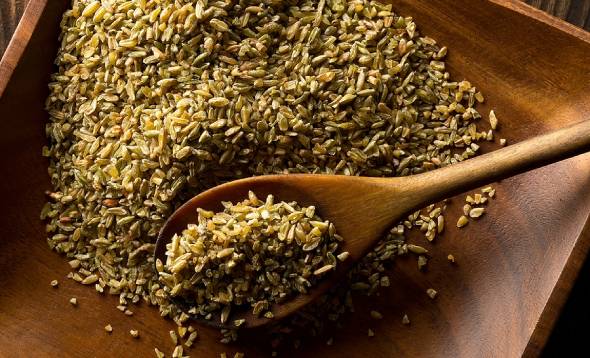That organic living is a conscious health choice
What is Freekeh & What You Need to Know About This Ancient Grain
Freekeh - pronounced free-KAH - is the latest of the ancient grains to make an impressive modern-day comeback.
Originating in the North African and East Mediterranean regions, the use of freekeh – also known as frikeh or farik - dates back to early biblical times.
This green grain is derived from young durum wheat which is roasted then polished to remove its tough exterior. Left intact, it can be enjoyed as whole freekeh or it can be broken into smaller pieces or ‘cracked’ to modify its texture and reduce cooking times.
So, why is this a standout ancient grain amidst the others? Let's start with its exceptional macronutrient nutrient profile. A single serving of cooked freekeh weighs in at approximately 170 calories, with only 1.5g of fat — comparable to most other whole grains. Yet, it packs in a whopping 7g of plant-based protein and 8g of fibre - that’s twice the amount that its protein-rich peer, quinoa, offers. This combination of nutrients makes it ideal for individuals watching their weight, as it sustains energy levels while keeping cravings at bay between meals. It’s also beneficial for people who need to monitor their blood sugar levels.
Freekeh performs well on the micronutrient front as well. One serving offers 1.8mg of iron — which equates to 10 per cent and over 20 per cent of an adult woman’s and man’s daily requirement, respectively. This makes it a valuable addition for anyone on a meat-free or plant-based diet. What’s more, it’s also rich in other vitamins - especially those in the B family - and minerals like manganese, potassium, calcium and zinc.
When viewed from a digestive health standpoint, freekeh boasts regularity-supporting fibres. Research shows that this grain also serves as a prebiotic. It promotes the growth of beneficial probiotic bacteria residing in the gut. The only drawback is that it contains gluten and isn’t ideal for those with Celiac disease or are gluten intolerant.
An easy alternative to rice and barley, freekeh can be prepared like any other whole grain. If you’re in a rush, using ‘cracked’ varieties can halve the cooking time from about 40 to 50 minutes, down to 20 to 25 minutes.
Cooked freekeh takes on a firm but chewy texture, similar to bulgur wheat. It also imparts a rich smoky and nutty flavour to soups, stews, salads and wraps.


























_1672804154.jpg)

_1611290459.jpg)